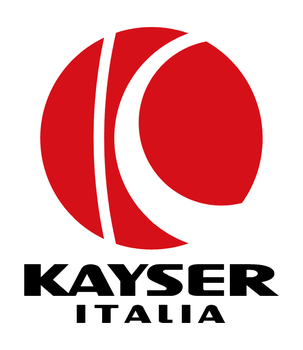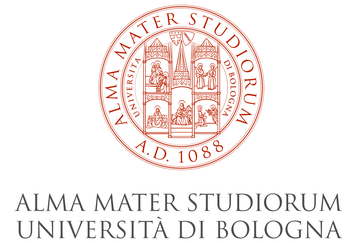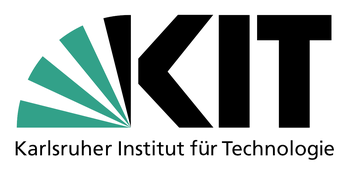
The School of Aerospace Engineering of the "La Sapienza" University of Rome is resposible for the coordination and supervision of the project. By virtue of its natural vocation, the research experiences of the School of Aerospace Engineering fit almost exclusively in the field of space experimentation from the study of space missions to the development of new hardware and software components up to the creation of complete satellite systems. The research activity of the School of Aerospace Engineering includes numerous scientific collaborations with national and international research groups and companies engaged in scientific research and technological activities in the Space field, in particular: Telespazio, Thales Alenia Space, Kayser Italia Srl, Gauss Srl, National Institute of Astrophysics, National Research Council, University of Bologna, Polytechnic of Milan. These collaborations are demonstrated by joint participation in research projects and scientific publications. The School has several experience in development of lab-on-chip device for space applications through the participation in several projects supported by ASI like PLEIADES, AstroBio CubeSat and APHRODITE.
Role in the project

The University of Twente is a public technical university founded in 1961 and located in Enschede, the Netherlands. The university has been placed in the top 170 universities in the world by multiple central ranking tables and was ranked the best technical university in The Netherlands by Keuzegids Universiteiten, the most significant national university ranking. The UT collaborates with Delft University of Technology, Eindhoven University of Technology and the Wageningen University and Research Centre in the 4TUFederation and is also a partner in the European Consortium of Innovative Universities (ECIU). The university hosts ca. 13,000 students and 3,800 employees, and annually hands out ca. 200 PhD degrees. The University of Twente connects technology, science and engineering with social sciences. The education and research are organised within 5 faculties. This project will be hosted by the Faculty of Science and Technology, and represented by the Mesoscale Chemical Systems group. This group carries out applied research of a multidisciplinary nature, with a focus on mesoscale phenomena, i.e. the scale ranging from a millimeter down to a few nanometers. The core activity of our group is the design, modelling, fabrication and testing of 3dimensional micro and nano structures and their integration in electronic, mechanical, (bio)chemical or medical miniaturized components and systems. Fabrication processes are mostly carried out in the MESA+ NanoLab, with its 1200 m2 cleanroom and analysis facilities.
Role in the project

Kayser Italia S.r.l. is a privately owned aerospace system engineering company located in Livorno, Tuscany. With over 30 years of experience, the company specializes in the design, development, manufacture, and testing of systems and components for scientific and technological research activities on board of space platforms. The staff consists of more than 70 highly skilled engineers with expertise in electronics, mechanics, thermodynamics, physics, computer science, optics, and molecular biology. Kayser Italia has contributed to more than 50 space missions with over 100 payloads, working as prime or sub-contractor for the European and the Italian Space Agency, NASA and others. The company's main goal is to consolidate its leadership position in Europe in the development of payloads and microgravity experiments. Kayser Italia supports partnerships and programs with universities and research institutes.
Role in the project

The University of Bologna takes part into a number of international networks and associations and actively participates in several initiatives connected with Horizon Europe. According to the latest ranking by Censis, the Alma Mater ranks first among Italian universities with more than 40,000 students for the thirteenth consecutive year. At UniBo, research activities are promoted, coordinated and supported by the 31 Departments. This project will be hosted by the Department of Chemistry “Giacomo Ciamician” which, since 2013, has firmly held its position as the best chemistry department in Italy. In the project, the Department is represented by the Bioanalytical Chemistry group, which consists of analytical chemists, experts in the development of bioanalytical methods and biosensors based on bio- and chemiluminescence (BL/CL) detection. The group has a mature experience in the development of CL-based miniaturized analytical devices for life science applications in space environment, acquired through the participation to various projects supported by the Italian Space Agency (IN SITU, PLEIADES, AstroBio CubeSat, APHRODITE) and is well-experienced in the development of genetically engineered whole-cell BL biosensors.
Role in the project

The University of Rome Tor Vergata develops thematic and inter-disciplinary research programmes with first-class institutions (at national and international level) and the best universities worldwide. According to the QR 2023 ranking Tor Vergata is among the best universities in 18 subjects, including mathematics, classics and ancient history, physics and astronomy. This project will be hosted by the Department of Biology and it will be represented by the group of Astrobiology and Molecular Biology of Cyanobacteria which consist in expert on the effects of space exposure of cyanobacteria and on the monitoring their behavior under stress conditions. This know-how was acquired through various projects supported by the Italian Space Agency, like BOSS_cyano, BIOMEX_cyano, BIOSIGN_cyano, Life in Space and ReBUS.
Role in the project

The Karlsruher Institut für Technologie is one of the leading German research institutions with a focus on engineering and the natural sciences as well as a university of excellence within the German excellence strategy. KIT was founded in 2009 by merging its precursor institutions University of Karlsruhe and the Karlsruhe Research Center. Research, teaching, and innovation are the core tasks of KIT, where more than 5,500 scientists cooperate in a broad range of disciplines in natural and engineering sciences, economics, the humanities, and social sciences.
The project will be hosted by the Institute of Data Processing and Electronics (IPE) and the Helmholtz research program “Detector Technologies and Systems”. We conceive and develop cutting-edge detector technologies and systems to keep KITs research activities at the forefront of scientific discovery, to exploit the scientific potential of our current and future facilities, and to explore novel detection methods that promise to open entirely new research directions. We will in particular strive to push the physical limits of space, energy, and time resolution, both in principle and in concrete systems, ready for experiment. In addition, we will develop innovative detector and data acquisition concepts to cope with the extreme data rates and adverse environmental constraints that are typical for experiments in large-scale research.
Role in the project